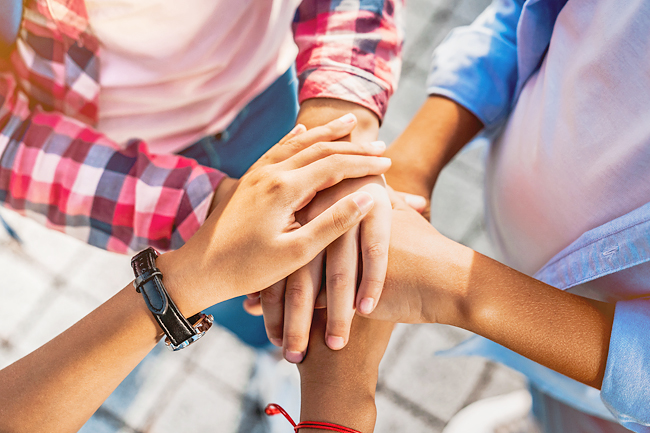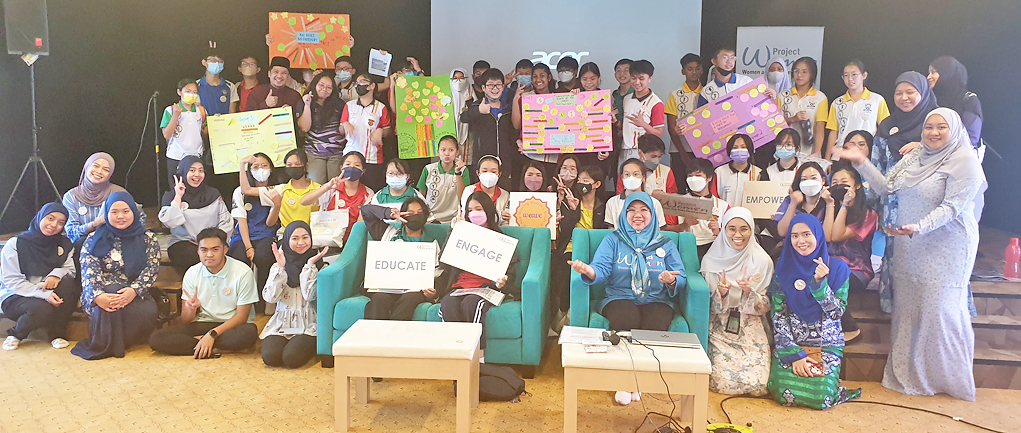Rizal Faisal
The Convention on the Rights of the Child (CRC) is the most widely ratified human rights treaty in history. It inspired governments to change laws and policies and make investments so that more children finally get the healthcare and nutrition they need to survive and develop, and there are safeguards in place to protect children from violence and exploitation.
It has also enabled more children to have their voices heard and participate in their societies.
This was highlighted during an awareness-raising talk on the CRC by Project Women Brunei, jointly organised with the Community Development Department (JAPEM) of the Ministry of Culture, Youth and Sports at the Youth Centre on November 23.
Brunei Darussalam ratified the CRC on December 27, 1995, and being a state party, it has been legally bound by its provision.
According to Project Women Brunei founder and Executive Director Nur Judy binti Abdullah, during her talk on ‘Safeguarding the rights of children through the CRC’, she shared the four fundamental principles of CRC: survival and development; non-discrimination; best interests of the child; and child participation.
She said, Survival and development is what all children have the rights to, with the state’s responsibilities to ensure developing children to their full potential, to the maximum extent possible.
“Non-discrimination is what ensures equality among all children without discrimination of any kind. It focusses on eliminating discrimination in individuals, groups and children in general.


“Best interests of the child are prioritised in any actions taken concerning children, overriding parents, community and state interests.
“Participation paves children’s rights to express their views in all matters affecting them and their opinions are given due weight in keeping with their maturity and evolving capacities.”
The 54 articles of the CRC were discussed based on the four categories of survival, development, protection and participation.
Nur Judy said, “Survival rights of children include the child’s right to life and the needs that are most basic to existence, such as nutrition, shelter, an adequate living standard and access to medical services.
“Children’s rights to development include a right to education, play and leisure, access to cultural activities, information, as well as freedom of thought, conscience and religion.
“Rights to protection from all harm includes domestic violence. Children must be protected from physical violence and psychological intimidation within and outside their families. It also includes protection from child labour, harmful substances such as drugs, trafficking, smuggling, kidnapping, sexual abuse and all forms of exploitation.
“In the process of justice, every legal procedure needs to take into account the best interest of children. For children separated from their families, they have the right to be protected and cared for with respect to their ethnic background, language, religion and culture.
“In wartime, every child must be protected from war or joining the fight. When children are refugees, they must have special assistance and protection.
“In participation, children have the right to participate in decision-making processes that may be relevant in their lives and to influence decisions taken in their regard-within the family, school or the community.”
At the same event, a talk was delivered by Project Women Brunei Programme Officer for Social Media Alyanna Merusin during which she said it is crucial for young students to learn how to protect themselves from harmful effects of social media as it has become a part of their daily lives.
“It is an important space for them to feel safe and use social media as a tool for accessing appropriate information, which is part of Article 17 of the CRC, she said.







